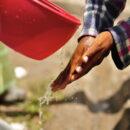Association of Concerned Africa Scholars addresses risks of KONY2012 campaign and military solutions
The Board and Executive of the national Association of Concerned Africa Scholars (ACAS) today called on the U.S. government to give more attention to supporting the African Union of 54 nations in negotiating for peace in the militia”torn areas of East and Central Africa. (Read statement.)
“We have listened to many African people from the war”torn areas of Congo, South Sudan, Uganda, and Central African Republic,” said David Wiley*, spokesperson for ACAS, “and they are calling for negotiations and peaceful reintegration of the militias into their communities. Many are saying they do not want a widening of the war with national armies who often commit atrocities backed by U.S. troops or advisors that could continue the conflict for decades.”
The Africanist scholars said they are encouraged that so many Americans are concerned about Africa and want to help with the disorder of the militias there. However, the ACAS says:
“… after consulting with scholars of Uganda and Central Africa and with other experts in the region, we are deeply concerned that the recent campaign in the United States to pursue and arrest Joseph Kony, leader of the Lord’s Resistance Army (LRA), could have dangerous unintended consequences. Expanding U.S. military operations with the Ugandan army to capture Kony could increase the militarization of the region and lead to deaths of civilians who are caught in the crossfire or become targets of retaliatory attacks by the LRA, as has occurred in the past.”
“Indeed,” Wiley noted, the Ugandan army itself has been guilty of atrocities and abuse of civilians both in Uganda, probably killing more people over the years than the LRA, and now in the Central African Republic while chasing Kony again.”
The Ugandan director of the Makerere University Institute of Social Research, Dr.
Mahmoud Mamdani, commented this week.
“The 70 million plus who have watched the Invisible Children video need to realize that the LRA – both the leaders and the children pressed into their service – are not an alien force but sons and daughters of the soil. The solution is not to eliminate them physically, but to find ways of integrating them into (Ugandan) society.”
Instead of military action, ACAS is calling on President Obama and the Congress to support and take the lead of the African Union (AU) and its new Special Representative for Counter Terrorism. ACAS also urges Obama “to take a strong stand against the use of child soldiers by fully complying with the U.S. Child Soldier Prevention Act of 2009 by prohibiting military assistance to the Democratic Republic of the Congo and other governments until they meet specific benchmarks,” as urged by Amnesty International.
“Much of Africa,” Wiley noted, “is awash with AK”47s and other cheap small arms, light weapons, and mines, the munitions of terrorist militias.” So ACAS also is calling on the Administration, “…to actively seek an effective United Nations Arms Trade Treaty (ATT) to end irresponsible trade in weapons, munitions, and other military and policing equipment that often inflict misery and carnage on people, especially in Africa.”
“Donations by Americans are very much needed for the pressing needs of these former child soldiers, the raped, and the displaced,” Wiley commented, pointing out that the “excellent programs” of the UN High Commission for Refugees (UNHCR) and the UN Children’s Fund
(UNICEF) are not fully funded for their work with the people displaced by the militias in the four countries.
* Wiley is Professor of Sociology at Michigan State University, is a former president of the African Studies Association, and has conducted research on Africa for 50 years.
For further information –
Chair, ACAS Task Force on Demilitarizing Africa and African Studies:
Prof. David Wiley, (Michigan State University) [email protected] (517″332″0333)
ACAS Co”Chairpersons:
Prof. Eve Sandberg (Oberlin College) [email protected] (440″775″3003)
Prof. Noah Zerbe (Humboldt State University) [email protected]
ACAS Board of Directors and Advisory Council:






[…] Association of Concerned Africa Scholars called on the U.S. to support a peaceful resolution to disarming militias and apprehending […]